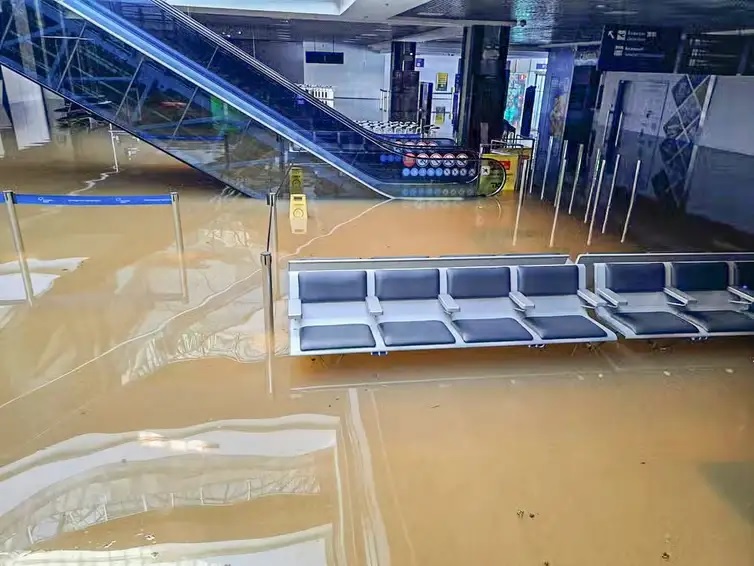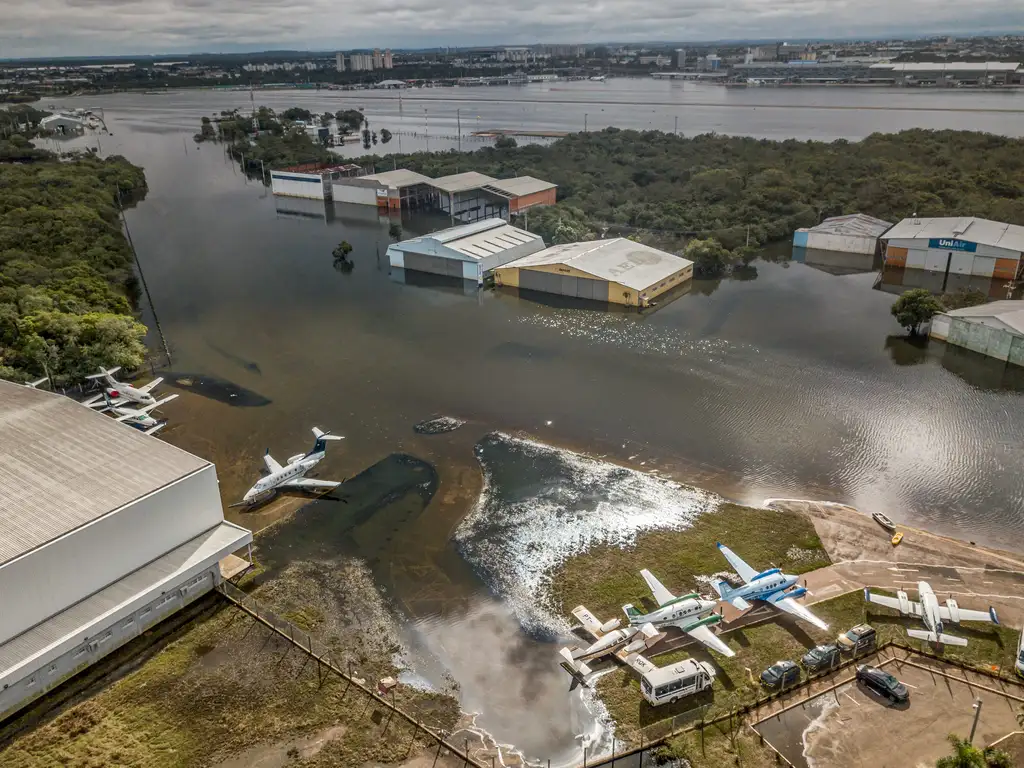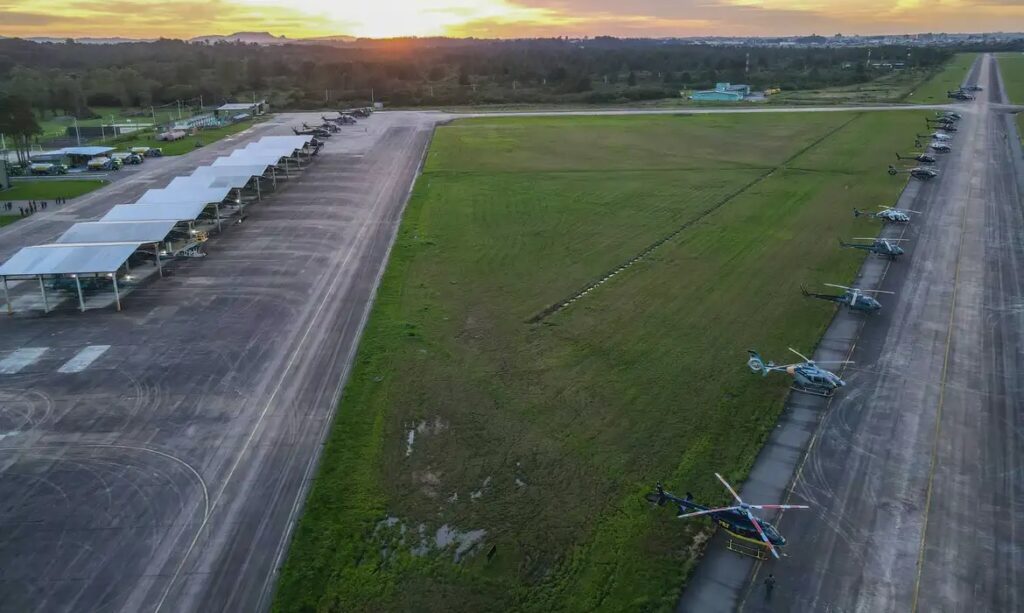São Paulo, Brasil – Heavy rains in Brazil’s southern Rio Grande do Sul state have caused hundreds of millions of dollars in damage across the state and brought travel almost to a standstill.
The Salgado Filho International Airport in Rio Grande do Sul’s capital, Porto Alegre, has been closed since May 3 and authorities still have not forecasted when it will reopen. Severe flooding caused the airport to indefinitely suspend all operations.
“At the moment, we do not have an estimate of the damage caused by the flood. After the waters recede, we will be able to assess in detail the impacts on the airport infrastructure,” Fraport Brazil, which manages the airport, said in a statement.
The water has not completely receded, and therefore, the damage to the terminal has not been fully assessed. There is a possibility that the runways will need to be rebuilt. In some parts of the arrivals and departures terminal, the water reached as high as 2.5 meters.
Fraport Brazil has submitted a request to the National Civil Aviation Agency (Anac), the government agency responsible for aviation, to rebalance the airport concession contract, which means that the necessary repairs would not be paid solely by the private company managing the airport, and there would be help from the government.

“Anac has received the request from Fraport Brazil for a financial rebalancing evaluation with a view to compensating the losses resulting from the flood,” said Anac. So far, the agency has recognized the situation as an “act of God,” meaning that Fraport Brazil was not at fault for the incident, which is necessary for the government to reimburse the concessionaire.
Before making any decisions, Anac will analyze the damages caused by the floods and the reconstruction costs. “The extent of the losses caused by the flooding at Porto Alegre airport is still unknown. The situation can only be assessed after all the water has receded.”
The management rights to operate the airport were sold by the federal government to the private sector in 2017. Since then, the terminal has been managed by Fraport Brazil. In 2023, Porto Alegre airport was the tenth busiest in the country, with 72,940 landings and takeoffs, according to data from the Airspace Control Department (Decea).
What passengers need to know
The Salgo Filho airport closure resulted in at least 4,700 flights being canceled between May 3 and May 30, according to Fraport Brazil, affecting more than 570,000 passengers. However, people who need to reschedule flights to Rio Grande do Sul will not have to pay additional fees to change their travel dates or their final destination.
Refunds (in cash or credit) or future vouchers for canceled flights will also be filled and there will be no cost for rescheduling flights within a year of the original date. These rules have been in effect since May 11, when they were made official by Anac.
Airlines also must strive to transport passengers to the airport closest to their destination whenever possible. Due to the closure of Porto Alegre airport, Anac also suspended the sale of tickets to the city indefinitely.

Airports in the interior
While the capital’s airport remains closed, 13 other smaller airports in the interior of Rio Grande do Sul continue to operate. As an emergency solution, airlines have been authorized to use the Canoas Air Base, which belongs to the Brazilian Air Force (FAB) and is located around 30 kilometers from Porto Alegre.
There are 10 daily commercial flights scheduled for Canoas Air Base, to transport passengers and cargo – five landings and five takeoffs. The space will be managed by Fraport Brazil and has been readapted to include a counter for check-in and luggage drop-off, x-ray equipment, and metal detectors.
The first flights began this Monday, transporting 700 passengers between Canoas and São Paulo. Thiago Silveira, who lives in Australia, returned to Brazil to help his mother, who lives in Rio Grande do Sul and was affected by the flood. “I had to come because of the flood. I came to help my mother and I’ll be back in two weeks,” he told Agência Brasil.
A resident of Porto Alegre, Tatiana Borin was on vacation in Rio de Janeiro when the floods began. She was unable to return home earlier because of the airport closure: “My return was scheduled for last week and all flights were canceled. I only managed to reschedule now. I still don’t know what I’ll find at home.”

The use of the air base is intended to be temporary and should last until the reopening of Porto Alegre airport and the end of state emergency in Rio Grande do Sul.
Furthermore, the Brazilian Association of Airlines (Abear), which represents companies operating in the country, said that it is working to prevent the state from being isolated and disconnected from other states.
According to Abear, in an emergency plan with the federal government, the supply of seats on flights to Rio Grande do Sul was increased from 7,000 to 17,000 per week, in flights distributed across six airports in the interior.










